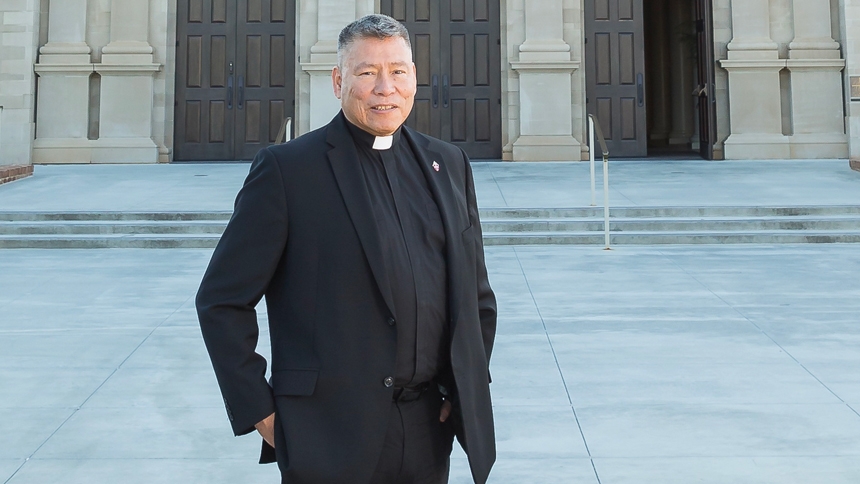
The Diocese of Raleigh is welcoming the 85th annual Tekakwitha Conference July 3 -7 at the Raleigh Marriott City Center Conference Center.
The conference includes activities for both youth and adults, and calls upon St. Kateri Tekakwitha, the first Native American saint and patroness of Canada, to guide attendees “through the creator’s woodlands.”
Keynote speakers are scheduled to share thoughts on the Mepkin Truth and Reconciliation Meditation Garden, a monastery in South Carolina, and the life of St. Kateri, who was canonized a saint in 2012.
Workshops center around topics such as Native Inculturation of the Roman Liturgy and Servant of God Nicholas Black Elk, a great Lakota spiritual healer who, at age 41, converted to Catholicism in 1904 and became a Catechist on reservations in South Dakota.
Bishop Luis Rafael Zarama of Raleigh is scheduled to open the conference with a welcome Wednesday evening, and celebrate Mass Friday, July 5.
Father David Miller, chaplain to the Native American Catholic Community in the diocese, will be present as well. Pastor of St. Mildred Parish in Swansboro, Father Dave was ordained in Raleigh in 2019 and has served in the NAC role for almost a year. Originally from Oklahoma, he's a citizen of the Cherokee Nation.
His time with NAC has been marked by establishing a strategic plan for engagement and evangelization, particularly with the help of the Kateri Circle.
In the Diocese of Raleigh, many tribes are in the northern areas, said Father Dave.
“And of course you have a large population of indigenous peoples over in Cherokee, North Carolina, the eastern band of Cherokees … in the Diocese of Charlotte” he said.
Father Dave’s plan, he said, focused on the Diocese of Raleigh, though, and identified where the indigenous population lived. He engaged both pastors of Catholic parishes and tribal leadership.
“It’s very cultural with Native Americans … they identify themselves as [citizens or members of] a particular tribe. You have to get in and engage the people where they are … all of this falls back to what the pope has been telling us. When I say evangelize, it means more than going out to baptize or confirm, that’s for the pastors. What I am trying to do is raise awareness of the Native American people.”
Tribes were identified in the diocese’s geographical area. They included: Coharie in Sampson County; Haliwa-Saponi in Halifax County and Warren County; Lumbee in Hoke, Robeson and Scotland counties; Meherrin in Hertford, Bertie, Northampton, and Gates counties; Occaeechi Band of the Saponi Nation in Alamance and Orange counties; Saponi in Person County; and Waccamaw Siouan in Bladen and Columbus counties.
“How many are Catholic?” Father Dave asked in his effort to engage tribes and seek out associations and societies. “Where are they and … how are they set up and formed? Each tribe is totally separate … Native Americans are very spiritual. They appreciate the land that they’re on.”
He learned more about how they are represented and what needs, particularly spiritual, there may be.
“The good news is God loves you and so do we,” he said. “It’s about planting seeds.”
Father Dave engages people with his personal story.
“I say, ‘Hey, I’m Native American, I’m a chaplain, I am a priest with the Diocese of Raleigh,’” he said. “Because they may say ‘you’re Native American, how is it that you became Catholic? What beliefs do you have that are different? What beliefs did you have to leave behind?’ We are all being sent … we all live differently.”
The Tekakwitha Conference comes into play, he said, as an important event for faith, culture and awareness.
It’s an event for all “friends” he said, whether Native Americans or non-Native Americans. It’s ecumenical in nature, like Kateri Circle. It’s welcoming and seeks to bring cultures together for understanding of things, such as powwows or smudging.
“Everyone’s culture is important,” he said. “It’s about raising awareness.”

